Category: Home Inspection
Tips for Inspecting Electrical Systems During Your Home Inspector Career
October 01, 2021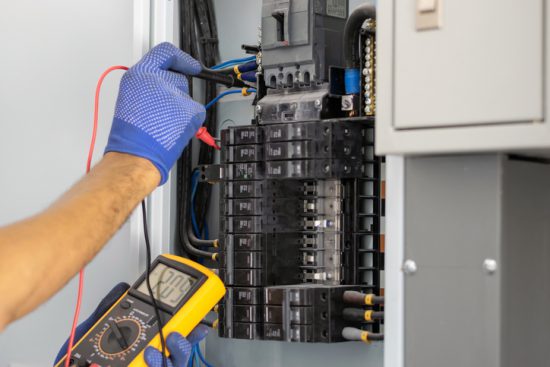
If you’re considering a career as a home inspector, you’ll be responsible for ensuring that a home is suitable for purchase. In this role, one of your duties will be to inspect a home’s electrical system. This inspection involves examining electrical components, systems, and wires to ensure that they meet the electrical safety standards outlined in national codes. This inspection ensures that a home’s electrical components operate safely, and enables future homeowners to save energy and avoid hazards. Below, discover some tips for conducting an electrical system inspection during your career as a home inspector.
During Your Home Inspector Career, Inspect the Outlets and Light Switches
After completing your home inspector training, you’ll want to examine a home’s outlets to determine whether they’re up to code or need replacing. When examining the outlets as part of your inspection of the electrical system, it’s important to check for the following:
- Whether the outlets or switches are warm to the touch
- Whether they show signs of discolouration
- Whether a strange smell (fishy or burning) is present near the outlets or light switches
- Whether they’re all in working condition
- Whether the plugs fit into the outlets
If any of these problems are present, it might be necessary to inspect an outlet or light switch for damage, or even replace these components altogether.
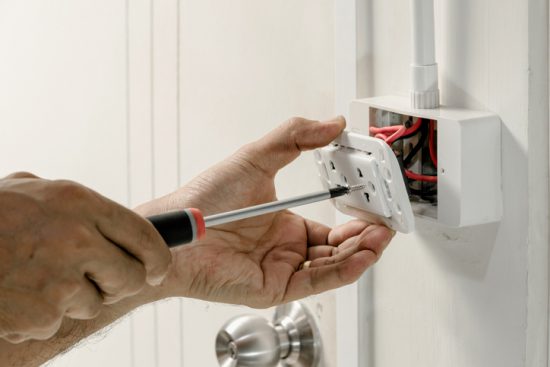
Inspect the Smoke and Carbon Monoxide Detectors
During any electrical system inspection, it’s also important to inspect a home’s smoke and carbon monoxide detectors. There should be a smoke and carbon monoxide detector installed on at least every floor of a home and outside of every room, and a smoke detector within each bedroom. If there aren’t enough detectors, additional devices may need to be installed to keep the home up to code. Additionally, the smoke alarms and carbon monoxide detectors should be tested to ensure they’re in working condition.
Check the GFCIs and AFCIs
Within a home’s electrical system, GFCIs and AFCIs are responsible for protecting against short circuits and electrical overloads. GFCI breakers and outlets protect against electric faults, while AFCIs protect against electrical arcing faults. Once you become a home inspector, you can test these components to make sure that they’re in working order. You can also check to make sure that the outlets in the home’s bathroom and kitchen are equipped with GFCIs, while AFCIs are used wherever there are circuit breakers.
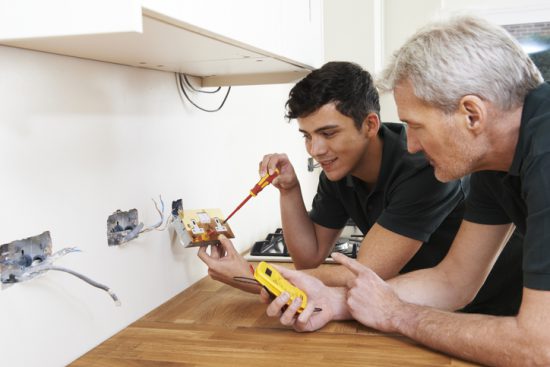
Examine the Electrical Appliances
A home’s electrical appliances should also be examined during an inspection of the electrical system, especially if the appliances are included with the new homeowners’ purchase. During your inspection, check to make sure the wiring around appliances is clear of any dust and debris or heat sources, as these may impede energy efficiency or increase the risk of fire. Additionally, check the HVAC system to ensure proper ventilation. Lastly, check that all of the appliances in the kitchen are plugged into GFCI outlets, as this is essential for their safe usage.
Ready to launch your home inspector career?
Start training with a program at the North American Trade Schools!
Infographic: 5 Reasons You Should Consider Becoming a Home Inspector
September 15, 2021Home inspectors have an important job, as they use their extensive knowledge of construction and building codes to identify potential problems in homes and communicate them to their clients. After completing home inspector training, these professionals possess a special set of skills that enable them to determine even the most subtle of housing component failures and offer effective solutions. During a home inspection, home inspectors check a house’s structure, heating, plumbing, air conditioning, exterior, interior, insulation, roofing and more–utilizing their practical skills as well as careful attention to detail to conduct an airtight inspection.
Want to become a home inspector? There are many benefits to pursuing this particular career. In fact, check out this infographic to discover five reasons to consider a home inspection career.
[Infographic] 5 Reasons You Should Consider Becoming a Home Inspector
1. Make Your Own Hours
As a home inspector, you can:
- Create your own schedule
- Conduct a variety of activities throughout the day, such as:
- Write reports
- Market to consumers
- Speak to prospective clients
- Contract your services to clients
2. Good Employment Outlook
According to Statistics Canada, home inspectors in Ontario have:
- A good employment outlook
- High demand due to construction
- Employment opportunities in:
- Public administration
- Architectural and design services
- Construction
- Self-employment
3. Have Fun While You Work
- Spend most of your time outside
- Enjoy an active career without risk of injury
- Thrive in a dynamic work environment
4. Perform Rewarding Work
During your career, you’ll:
- Use your skills to help clients sell their homes
- Ensure that clients are purchasing a safe home
- Help people to make the right decisions
5. Convenient Options for Training
At the North American Trade Schools, home inspection programs:
- Can be completed in a matter of months
- Equip students with practical skills
- Enable graduates to enter a career right after training
Plumbing Damage: 5 Signs to Look Out for During Your Home Inspector Career
August 10, 2021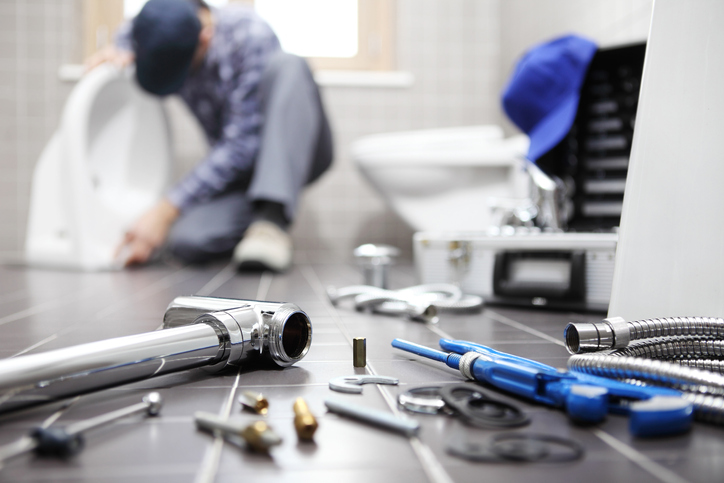
Of all the issues that can occur within a home, plumbing system problems are right up there with the most significant. Without a functioning plumbing system, a home may undergo the risk of significant water and pipe damage–yielding costly repairs. If you’re considering a career as a home inspector, it will be your responsibility to identify issues within a house and warn buyers of any potential problems.
One of the areas of a home that you’ll need to examine closely when conducting your inspection is the plumbing system. Even the smallest of potential issues can lead to a hefty bill down the road, so it’s important to catch problems as early as possible. Below, discover five different signs that a home is experiencing plumbing damage.
1. During Your Home Inspector Career, Check Whether the Water Pressure is Weak
Weak water pressure is a telltale sign that there’s some kind of problem with the plumbing system. After you complete your home inspector training, be sure to check the water pressure to determine whether there’s an issue with the distribution of water within the system. Weak water pressure should either be caused by a clog in the pipes, or an issue with the faucet aerator–the mechanism which controls the distribution of water. While it’s often a simple fix, it’s better to determine the source of the problem rather than letting the issue get worse.

2. Determine the Drainage Speed
Another common sign of a plumbing problem is slow drainage speeds. If only one drain is experiencing slow speeds, this means the drain can be unclogged with a drain cleaner, plunger, or another tool. But if every drain is operating at a slower speed, there’s likely a more serious problem at hand. In this case, the main sewer line might be blocked, which often happens if a growing tree root gets in the way of the sewer line’s path.
3. A Bad Odour Might Indicate a Problem
If there’s a strong odour coming from a home’s drains, it’s typically a sign that the drain traps aren’t working properly. Drain traps are made for the purpose of stopping sewer gas from seeping into a home by forming a type of barrier or water plug. They work in tandem with a vent, which transfers sewer odor to the roof and away from the interior. If there is a strong odor present in the home, one of the drain traps might have run dry or one of the lines in the vent has cracked. It can be difficult to pinpoint the source of the leak or crack, but it’s necessary in order to fix the problem and prevent smells in the future.

4. Check the Colour of the Pipes
After you become a home inspector, you’ll want to check the condition of the plumbing pipes. These can typically be found under the sink and in the basement of the home. If the pipes are showing any signs of rust, corrosion or discolouration, this can indicate that there is a leak in the pipe. Leaks can lead to water damage, which can compromise the integrity of a home’s structure and create mold growth. With these potential issues in mind, if any discoloured pipes are identified, they should be replaced before a homeowner moves in.
5. Look for Problems with the Paint
Wondering whether the plumbing system is leaking, but can’t identify the source of the leak? When inspecting a home, it’s important to note that leaks in the plumbing system can manifest in the walls or ceilings of a home. Is the paint brown, blistering, or bubbling? This could be a sign that there is water damage beneath the paint’s surface. In order to prevent the growth of mildew or mold and keep the walls structurally sound, it’s important to fix the leak and repaint the area before the damage worsens.
Are you ready to launch your home inspector career?
Get the skills you need to succeed with a program at the North American Trade Schools!
5 Common Home Issues You’ll Encounter During Your Home Inspector Career
July 13, 2021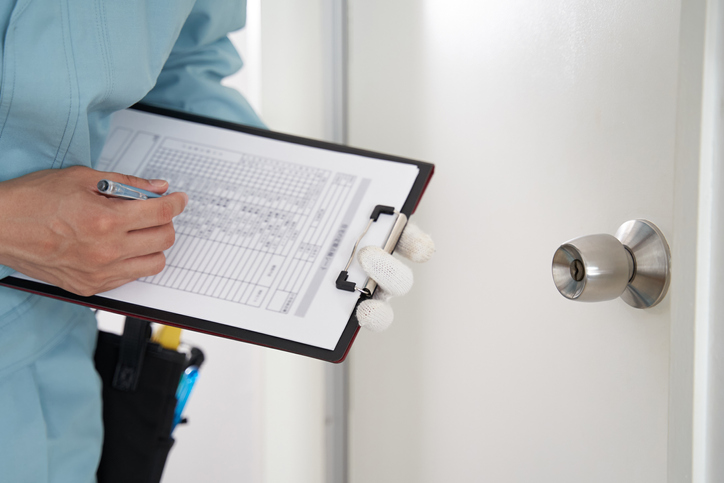
Home inspectors have an important role to play in the process of purchasing a home. These professionals have the knowledge and skills necessary to identify issues in homes that aren’t usually visible to the naked eye. They’ll also communicate with a home’s potential buyers to alert them of any possible problems, enabling them to make an informed decision before moving forward.
If you’re seeking a career as a home inspector, you’ll be visiting homes to conduct a thorough inspection, identifying damaged components, signs of neglect and more. Your success will be enhanced if you familiarize yourself with some common issues you can expect to identify in home inspections throughout your career.
Below, read on to discover five of the most common home issues to be aware of!
1. After You Become a Home Inspector, You May Encounter Damaged Roofing
Roofing damage is one of the most common forms of home damage, making it important to look closely at the roof during your home inspector career. Signs of damage can appear in the shingles, trim, and flashing, and all of these components should be closely expected. Additionally, it’s important to obtain information such as when the roof was last replaced, what the life expectancy of the roof is, and whether any repairs have been done on the roof. The roof may also show signs of leakage, and if any damage is found, the buyers should be notified immediately.
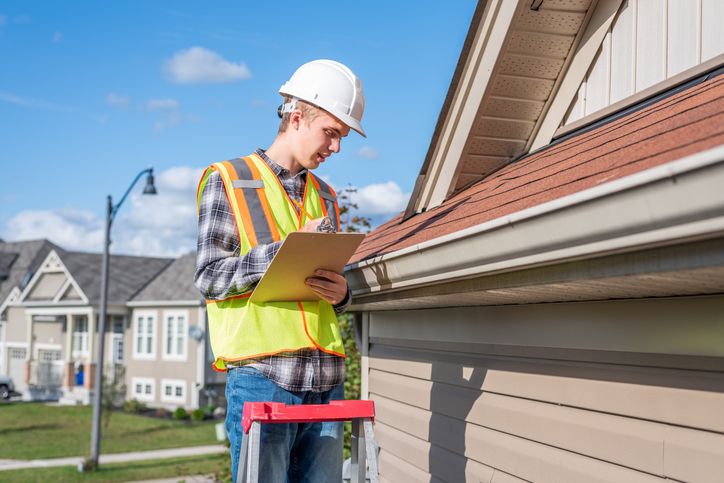
2. Water Damage Issues Are Common
Water damage can often lead to mold growth, structural damage, and leakage, so it’s crucial to address this problem during a home inspection. Check the pipes for cracks, and examine the ceiling, attic, flooring, and basement for any signs of warping, cracking, or water spots. Water damage can also be caused by drainage problems, so ensuring that drainage systems such as roof gutters and downspouts are securely installed is necessary when it comes to preventing future water damage.
3. Check for Electrical Problems
If you want to become a home inspector, you’ll want to note that electricity problems are common in many homes. When conducting an inspection, check a home’s circuit breaker and electrical panel. You’ll want to determine whether there are any components that show signs of wear, or whether the electrical system is outdated. Additionally, inspect the wiring to see whether there are any bad connections that can be identified, and ensure that all wiring is correctly grounded. Lastly, compare the electrical system with relevant electrical codes to make sure there are no violations.
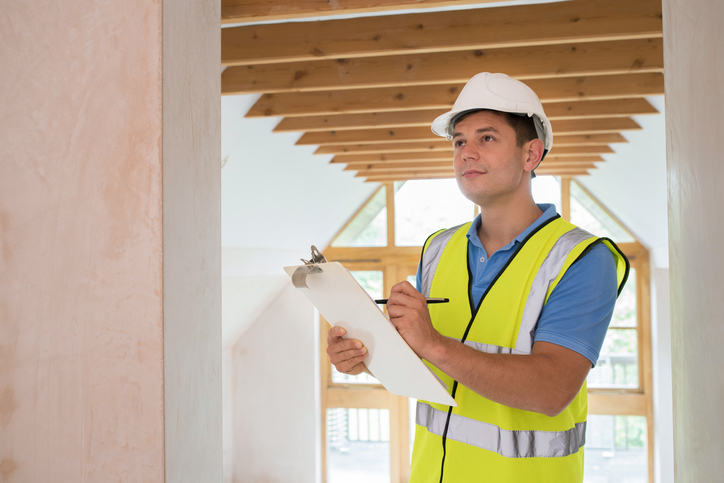
4. In Older Homes, the Foundation Can Present an Issue
Depending on how old a home is, the foundation can often present an issue. A foundation may show signs of cracking, which may be caused by environmental factors, tree roots, a lack of reinforcement, or drainage issues. As a cracked foundation can cause interior leakage and even create shifting within a home, it’s important to look out for potential problems in order to save buyers from safety hazards and hefty expenses down the road.
5. General Maintenance Problems Are Often Discovered
If a home hasn’t been well maintained by its previous owners, there will often be many signs of general neglect which should be identified during a home inspection. The paint (both interior and exterior) might be cracked, the heating and cooling system may need repair, and major appliances such as the oven, refrigerator, and dishwasher may need replacing. While these may seem like cosmetic issues, they can end up costing homeowners a lot more than anticipated down the line.
Ready to begin your home inspector training?

The exterior of a house can tell you a lot about what to expect from the house itself. If you’re considering a career as a home inspector, it will be your job to assess the condition of the exterior to ensure that the home is suitable for buyers to move into. With a trained eye, you’ll be examining the exterior components for any potential problems or deficiencies–relating your findings to the buyers.
When inspecting a home’s exterior, there are a few potential problems to look out for. Whether it’s a crack in the foundation or a few misplaced shingles on the roof, these seemingly small defects can create bigger issues for buyers down the road.
Read on to discover four exterior home inspection tips that will help you to determine whether a house is acceptable for future buyers.
1. During Your Home Inspector Career, Pay Attention to How Water Is Managed
If water isn’t being routed properly throughout a home’s exterior, this can create big problems in the future. When water is in places where it shouldn’t be, it can cause mold, rotting wood, foundation damage, and other issues. To ensure that a home isn’t vulnerable to water damage, it’s important to carefully inspect the gutters and downspouts of a home during your home inspector career. The gutters should be clear instead of clogged, and the downspouts should be routing water into the storm system plumbing instead of near the foundation of a home. Additionally, check the gutter and downspout mountings to make sure that they’re secure.
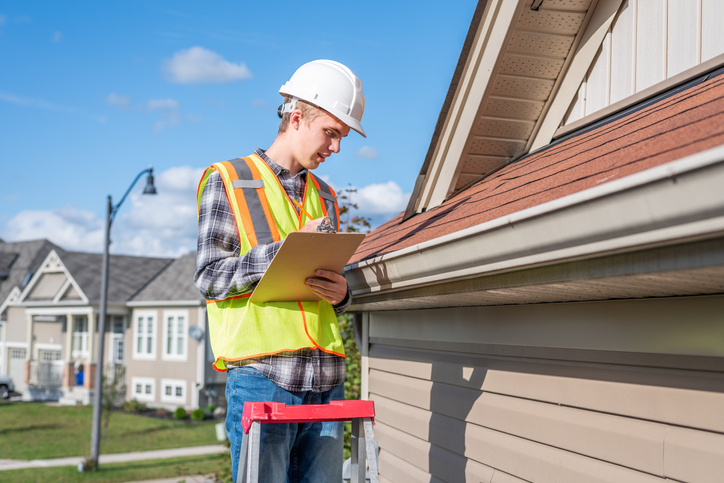
2. Always Carefully Examine the Roof
The roof of a home is essential in maintaining the condition of the interior. Roof problems are important to address before buyers move into a home, as they can be expensive to repair. As a home inspector, you’ll want to know how old the roof is, which can give you some context when it comes to the inspection process. To determine whether a roof is in good shape, make sure to climb up to the roof for closer examination. Check to see that the shingles are not loose, misaligned, or missing. Additionally, check all seals to ensure that water cannot leak into the interior. If the roof is in bad shape, this could be a potential problem for buyers.
3. Look Out for Rotting Wood and Other Siding and Trim Issues
The siding of a home can tell you a lot about how the home’s owners have maintained their property over the years. If you have home inspector training, you can examine the siding and trim of a home for signs of wear and tear in a few ways. First, examine the exterior paint for areas of damage. Spotty or missing paint can indicate the condition of the wood beneath it, which could be rotting. Additionally, search the siding and trim for signs of insect or rodent damage. If the siding or trim contains holes or cracks, this could be a sign that it needs replacing.
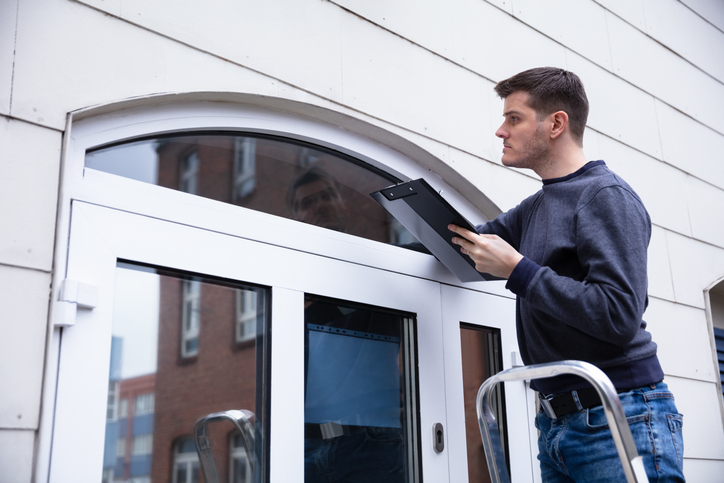
4. Is the Foundation Cracking? Don’t Forget to Inspect It
The foundation is one of the most important components of a home, as it’s responsible for maintaining the structural integrity of the building itself. As a home inspector, one of the biggest mistakes you can make is forgetting to examine the foundation for signs of stress or cracks. Foundation problems can also manifest in the form of slanted floors or misaligned window and door frames. Check the foundation to ensure that it’s completely stable, as an unstable foundation could result in safety issues for the home’s buyers.
When inspecting a home’s exterior, keeping these tips in mind will help you to make a sound assessment about the condition of a home. Don’t forget to use them throughout your home inspector career!
Ready to become a home inspector?
Get the training you need to launch your career with a program at NATS!
4 Things You Should Know About Energy-Efficient Home Insulation After You Become a Home Inspector
April 06, 2021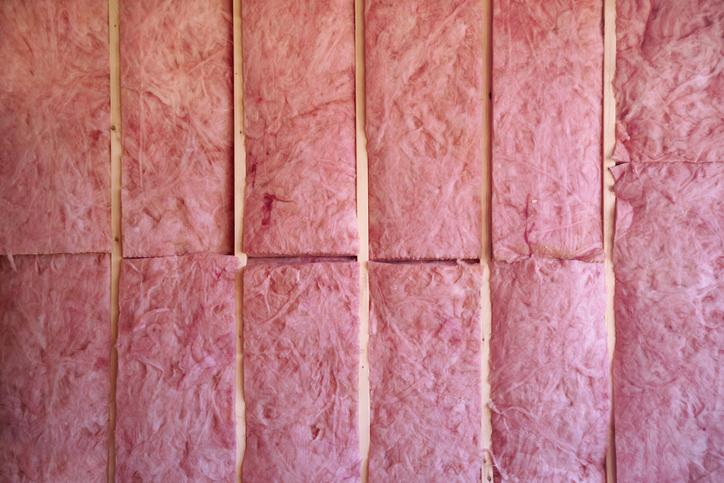
Insulation serves a vital function in every home: it prevents heat from flowing in and out. Thanks to insulation, a home can be kept cool in the summer while staying warm in the winter. However, not all insulation is created equal, and some homes are equipped with insulation that is less efficient than others. When insulation isn’t installed correctly or is located in the wrong places, a home can lose energy–resulting in a higher-than-average energy bill and a drafty living environment.
If you’re interested in becoming a home inspector, there are four things you should know. They are: energy-efficient insulation, how energy-efficient insulation works, the various types of insulation, and where it should be installed. When equipped with knowledge about energy-efficient insulation, you’ll be able to accurately assess the insulation of a home to determine whether it’s doing its job, or if an upgrade is needed.
1. Those with Home Inspector Training Should Know How Energy-Efficient Insulation Works
Today, homes are more energy efficient than those of the past. This is due to developments in building products, smart appliances, and improved electrical systems. However, much of a home’s energy consumption depends on the amount of insulation used and where it’s installed.
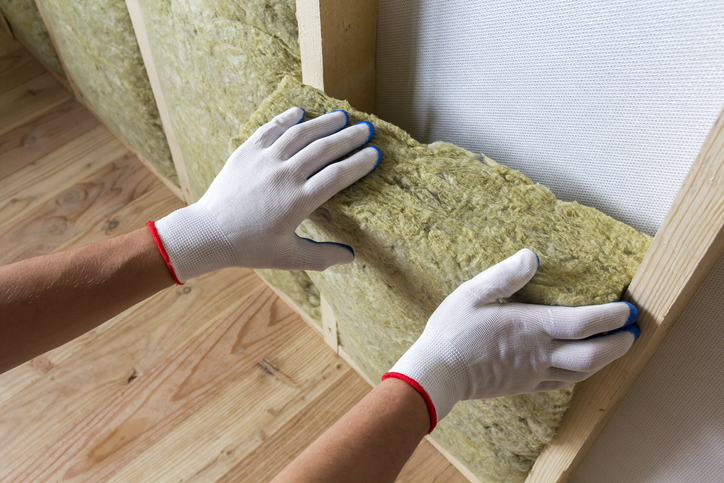
During your home inspector career, it’s important to check the insulation in a home’s roof, walls, floors, and other areas to determine its thickness and the material used. When insulation is optimized for efficiency and effectiveness, less heat or cold air will escape through its exterior–putting less strain on ventilation systems and resulting in reduced energy consumption.
2. There Are Many Different Types of Energy-Efficient Insulation
There are many different kinds of insulation which can be used in a home, and different types of insulation materials have different advantages. Insulation’s efficiency is measured as an R-value. R refers to the resistance to the flow of heat. As a home inspector, it’s important to identify the material of insulation in a home in order to determine its R-value. Cellulose, fiberglass, and spray foam insulation are all commonly used insulation materials within a home, and each of these will have a different R-value.
3. Insulation Should Be Installed in Many Different Areas of a Home
Once the existing insulation’s efficiency has been determined, those with home inspector training can move on to check all areas of a home where insulation should be installed. Many homes use excessive amounts of energy due to the fact that many areas are left un-insulated. When inspecting a home, check that there is sufficient insulation in a home’s roof, walls, attic, floors and foundation. If any of these areas aren’t equipped with insulation already, some form of the material should be installed as soon as possible to improve the home’s energy efficiency.
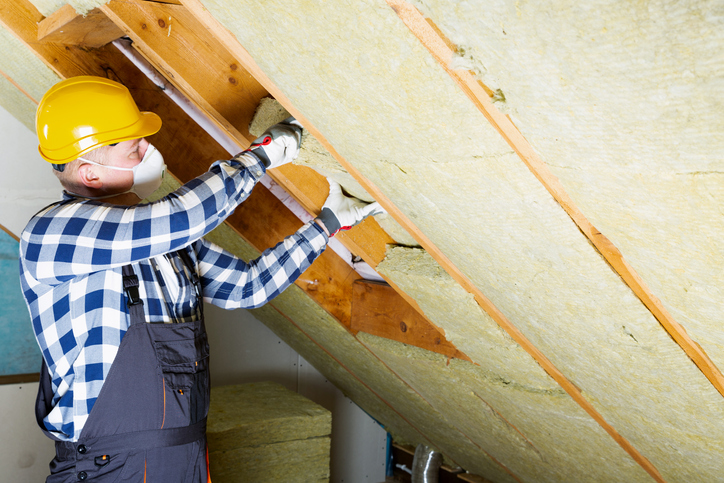
4. Insulation can be Measured to Determine its Efficiency
When assessing a home’s insulation for energy efficiency, it’s important to measure the insulation in place in addition to determining which areas which need to be insulated. The efficiency of a home’s insulation can be measured using an equation. First, identify the material of the insulation, and conduct research to find this insulation type’s R-value. Next, multiply this R-value by the thickness of the insulation in place. The resulting number can be compared to standard recommendations to confirm whether the amount of insulation in place is suitable to provide adequate insulation against air flow. Existing insulation may need to be upgraded for increased thickness, depending on the results.
When establishing whether a home is energy efficient, it’s important to check where the insulation is located, as well as whether additional insulation needs to be installed. Those seeking a career in home inspection can help homeowners to reduce their energy bill by identifying areas for insulation improvement, and recommending changes that will maximize energy efficiency.
Are you ready to become a home inspector?
Get the training you need with a program at the North American Trade Schools!
How Those Considering a Home Inspector Career May Play a Role in Real Estate Transactions
October 01, 2020
When a buyer is ready to make an offer on a house, the next step is usually to hire a home inspector. The inspector’s job is to take a thorough, objective look at the property in question–from its roofing, structure, electrical and heating, to its air conditioning, plumbing, and siding to ensure the home is in solid condition.
While clearly in the buyer’s interest, the home inspection process makes most sellers nervous–with its potential to put a wrecking ball to a real estate transaction. A home inspection can even prove to be a disservice to the buyer if the job is poorly executed. For instance, an inexperienced or careless inspector can kill the deal by unnecessarily alerting the buyer to trivial issues. This can draw up a long list of minor problems in the final inspection report without adequately explaining the relative importance of these issues.
The right training teaches an inspector the most crucial aspects of the home inspection to focus on, and how to put minor defects into context to ensure the buyer’s confidence isn’t compromised, and the deal isn’t sabotaged.
What Exactly Does a Home Inspector Do?
Paid solely by the buyer, the job of the inspector is to conduct an objective evaluation of the home to make sure there are no issues with the functioning of the systems and components of the house, and that there are no existing safety hazards anywhere on the property.
Anyone wishing to become a home inspector will learn how to pay special attention to the building’s foundation and siding to make sure there’s no presence of cracks, warping, or rotting. The roof is another focal point, needing careful examination to exclude problems with shingles or gutters.
Inspectors must also ensure the home’s plumbing is leak-free, and that the water heater, wiring, heating systems, and any existing fireplaces are in safe working condition. The process usually takes no more than two to three hours, but can take longer if issues concerning compliance with building regulations are revealed.

Once the A-Z’s of the home have been examined, the home inspector is responsible for preparing an inspection report for the buyer. This document represents the condition of the home at the time of the inspection. The report also serves to list any defects that may need repairs. From the report, a buyer can make an informed decision on whether or not to complete the real estate transaction with the seller.
Why is Training Crucial for Someone Wishing to Become a Home Inspector?
Real estate professionals often complain about home inspectors that go too far with the inspection by raising attention to every tiny issue, and potentially causing irreparable damage to the buyer’s confidence.
A less helpful inspector might provide a long list of superficial issues – anything from minor surface mold, to cracked tiles, loose fixtures, and chipped paint – without explaining the minor importance of these issues, and the relatively low cost of fixing them.
Pros with home inspector training are taught to understand the weight that they carry in the real estate transaction, and learn the importance of focusing on major construction and systems points to consider on behalf of the buyer. They are given clear direction, for example, on how to detect signs of non-performance due to old age, weather damage, and poor workmanship. Additionally, trainees learn the importance of providing context to the buyer when revealing more minor defects, so the buyer isn’t unnecessarily scared off an otherwise superior build by a slew of minor, low-cost repairs.
What Does it Take to Become a Home Inspector?
A person with an interest or background in residential construction, as well as strong technical writing and time management skills would be an excellent candidate for home inspection training.
It might also be helpful to have some general people skills for dealing effectively with home buyers and real estate agents. Additionally, some engineering knowledge can be handy to correctly evaluate properties and follow established procedures more closely.

An inspector with the right training can provide an invaluable service to home buyers and gain a great reputation in the industry, leading to consistent recommendations and a steady flow of work.
Interested in training for a home inspector career to join this exciting and growing profession?
Contact North American Trade Schools to find out more!
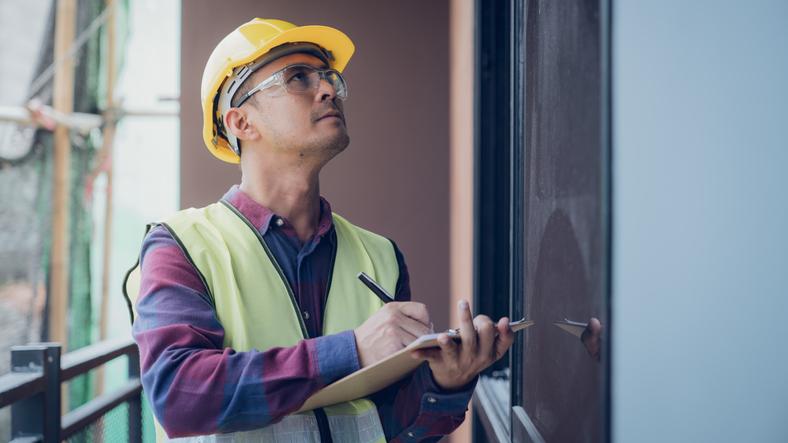
A career in home inspection doesn’t just involve understanding how the various systems and areas of a house work. You’ll need to have several other types of skills under your belt as well. You’ll want to be sure you’ve mastered these skills in order to make sure the home is in the best possible condition.
From understanding electrical systems and roofing, to effectively drafting reports and communicating to buyers, a successful home inspection career is made of many different things. Here are five skills necessary for success in your home inspection career.
Firstly, a Strong Understanding of the Craft Is Necessary
It goes without saying that understanding how home inspections work, as well as having a foundation in construction, is needed in order to succeed as a home inspector. You should be able to understand how various aspects of construction work, as well as the procedures of a home inspection and which tools are necessary for expediting the process. With any home inspection career, technical knowledge is key—whether it’s with structural components, heating, insulation, roofing, or any other area of a home.
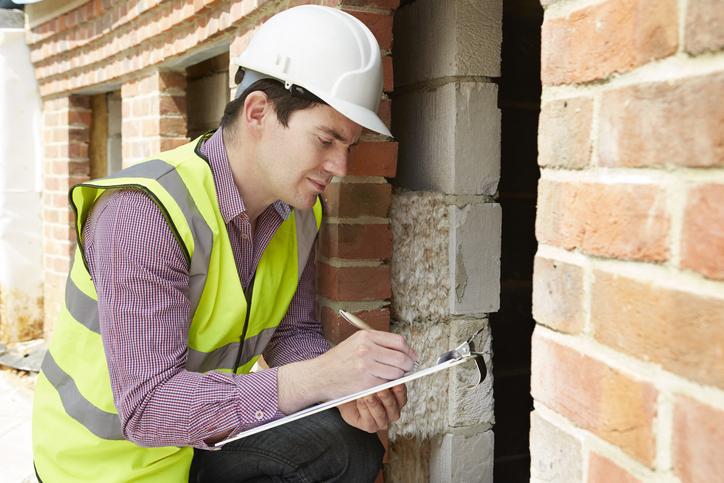
Being an Excellent Communicator Is Also a Major Plus
The bedrock of any home inspection is the ability of the inspector to explain to the prospective buyer what the results of the inspection were, and how ready it is for the buyer. This is important not only for verbal communication, but for written reports as well. Anyone hoping to become a home inspector will need to be a great communicator in order to provide the most detailed report possible. Effective communication will help reassure potential buyers that they’ve chosen the right home, and that all systems are a go for them to move in.
A Good Eye for Problems Is Huge for Your Home Inspector Career
If you aren’t able to deftly identify and diagnose problems with the home, you’ll have a hard time finding success. The ability to detect issues in any kind of home, and know what is necessary to fix them, is crucial. It’s important to understand not only how each component functions, but what factors would make a repair or full replacement necessary. Alerting prospective buyers to any issues that could delay them moving in—or even make the home unappealing for them—is essential.
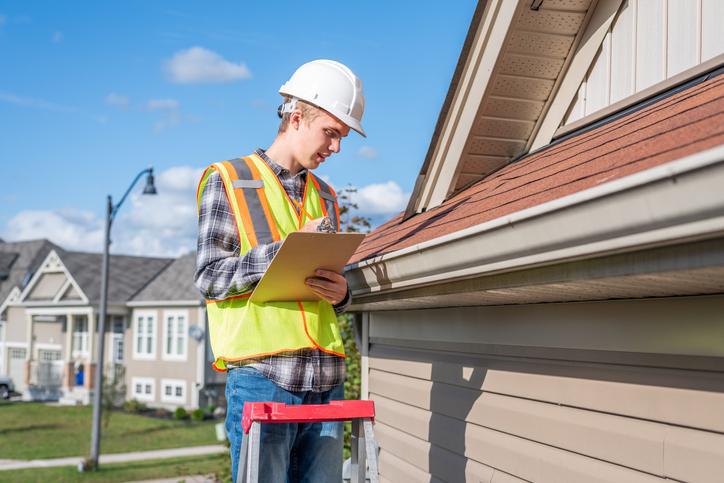
Understand the Importance of Time Management
Another significant aspect of your home inspector career is being able to manage your time effectively. Not only will you be trying to manage how much time you spend actually inspecting the home, but you’ll need to take into account how long it will take for you to travel there. You will also need to consider how much time you’ll need to get reports ready, and how much time will be necessary for all processes to be complete.
Problem-Solving Skills Are Also a Major Asset in This Career
Lastly, one of the other keys to success in home inspection is the ability to problem-solve. You’ll need to showcase these abilities throughout your inspection, especially when something is not quite right in the home. It’s important to analyze what issues may occur during the inspection, and be able to quickly come up with solutions. A strong attention to detail is also beneficial, as you’ll want to carefully go through each area with a fine-toothed comb so that all potential issues with the property are accurately identified.
Do you want to start your home inspection training?
Contact North American Trade Schools for more information!
Ready to Become a Home Inspector? Here’s How to Inspect Homes Safely During the Pandemic
July 24, 2020
Have you ever found yourself staring at the properties on sale in a real estate agency’s window even though you’re not looking to buy? Do you love troubleshooting problems around your own home? Are you passionate about property in general? If so, then a career in home inspection could be for you!
Home inspectors offer a consulting service to anyone looking to buy a residential or commercial property. They evaluate a home by inspecting its roofing, structure, electrical, heating, air conditioning, exterior, insulation, and interior.
Qualified home inspectors can benefit from competitive salaries and a flexible schedule. Read on to find out whether you should consider becoming a home inspector!
1. There is Steady Demand for Home Inspectors
For as long as people and businesses continue to buy property, there will be demand for home inspectors. A home inspection is always recommended, if not required, before purchasing a property.
There are millions of properties across Canada and real estate transactions are always taking place, meaning that a home inspector is unlikely to ever be out of work! The demand for home inspectors in Canada is predicted to remain steady over the next few years. This makes it a great career for anyone looking for job security.
2. Become a Home Inspector to Earn a Competitive Salary
Home inspectors can earn well above minimum wage, especially as they become more experienced. The average salary for a home inspector in Canada is more than $32 an hour, which equates to around $66,500 a year. This is significantly more than the average salary in the country.
3. Help People with One of the Biggest Investments of their Lives
If you’re a people person and are looking for a rewarding career that involves helping others, a home inspection career might be for you! While it might not be the first job that comes to mind, home inspectors help people with what could be the biggest investment of their lives.
Buying a home is not a small decision.As a home inspector, you are helping others to make the right choice, and your advice could help to save your clients hundreds of thousands of dollars.

Because home inspectors need to have strong interpersonal and communication skills in order to work with the public, it’s also a great career for anyone who is good with people. In home inspection training, students will learn communication skills as well as practical knowledge about homes to help equip them for both of these aspects of the job.
4. Enjoy a Flexible Schedule and Start Your Own Business
One of the other great things about being a home inspector is the flexibility that it offers. You can choose to take on work and schedule inspections when it works for you, making it easy to balance around your other commitments. You also have the option to start your own business to give you even more flexibility.
5. Don’t Break Your Back!
A home inspection career is hands-on without being physically demanding. If you’re interested in construction, for example, but not keen on the physical aspect of it, or want something that you can do as you get older, home inspection could be a perfect fit.
Additionally, if you’ve spent a lifetime working in construction or HVAC and are now looking for a new challenge, home inspection could be for you. It will allow you to put your knowledge and practical background to good use.
Do you want to become a home inspector?
Contact North American Trade Schools today!









